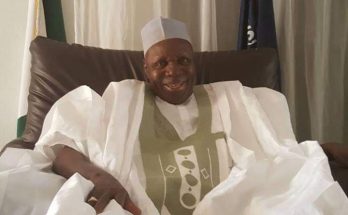About two weeks ago, the women of this country as represented by gender activists, professionals, and other concerned women groups filed out to protest the recent killing of students of FGC, Buni Yadi, in Yobe state. They spoke with one voice in their condemnation of government’s inaction and seeming lack of interest to contain the continued spread of violence in the North in general and the North-east in particular. They asked pertinent questions: “Is Boko-Haram bigger than the government? Does the government not know what to do? If our husbands and children are all killed, what happened to us?” The poignant questions reverberated across the length and breadth of the country and beyond.
Whether by design or a mere coincidence, the protests have engendered renewed onslaughts by government troops on the insurgents. Last week, the military said they recorded a major breakthrough. As proof, they displayed the captured fighters and recovered weapons. Defence Headquarters spokesperson, Major-General Chris Olukolade, said: “Scores of wounded terrorists who escaped from various camps under the fire of security forces have been captured in the fringes of Lake Chad. The captured terrorists, some of whom are fatally wounded are already making useful statements to interrogators of the Multi-National Joint Task Force. In their confessions, it was revealed that some of the camps have been disbanded following the directive of their clerics who declared that the operation of the sect has come to an end as the mission could no longer be sustained.” The insurgents were also said to have spoken of heavy bombardments and starvation and lack of medical attention for the wounded, leading to their resolve to accept defeat.
Notwithstanding the reassurance by the military high command, last weekend saw the killing of over 400 people across the North-east raising more questions than answers. And despite the skepticisms of the general public, the military upped their ante at the weekend with the capture of the sect’s armoury, where arms, ammunitions and money in different denominations and currencies were discovered. The discovery of weapons during the raid was said to be so “massive”, the military spent the weekend to “evacuate” them from the scene of the raid. With these revelations it would be unfair to condemn the entire security operation as a sham.
Unfortunately, the military hierarchy and the government provided the background for the suspicion expressed by the populace. Last week when the first report of the insurgents in disarray and pictures were made public, disbelief and caution were rife. For example, a retired military officer called to criticize this paper and the media in general for not doing enough scrutiny of what the military dished out to unsuspecting public in their false claim of winning the war against terrorism. Coming from someone who should know and whose primary constituency is the military itself, Nigerians, I think should tarry awhile before they roll out the drums to celebrate the military’s exploits in the terrorism war.
And you can’t blame the doubting Thomases among us. Where there is no sincerity and transparency in governance, quiet a large number of information that filters to the citizens from the government is taken with a pinch of salt, and for obvious reasons. Last year, the government announced that they had overrun the Sambisa forest where the insurgents congregated under the radar and effective surveillance. After a few strikes at their “targets” and the killing of innocent civilians as part of the collateral damage, the military went back to sleep or so it seemed because of series of daring attacks by the insurgents that followed.
Not long after, Nigerians woke up one day to the revelation by the Army of the death of Boko Haram’s spiritual leader. Abubakar Shekau was said to have died of bullet wounds sustained during a battle with the JTF. The then JTF command said they intercepted correspondences from captured insurgents where they disclosed to themselves that “Malam” had died. Again, to be fair to the army, the statement on Shekau’s purported death did not come with one hundred per cent certainty, especially as there was no pictorial evidence to show the world. Soon after, Shekau “resurrected” with more chilling statements and heart-wrenching attacks as witnessed in the killings in parts of Yobe, Maiduguri Airport, airforce base, Konduga Maniok and Izge communities with death and destruction in their trail.
Indeed, the government’s renewed crackdown is looking good and appears to be yielding results. But if the truth must be told, it is too little, too late. It took the killing of school children, the public outcry of Governor Kashim Shettima, the condemnation of the world community and the protests of Nigerian women to stir up the government from a very long slumber. How sad! Even with the ongoing situation, there can’t be celebration yet until the country is liberated not just from Boko Haram but from all the indices of poverty and illiteracy that predispose the madness like Boko Haram to blossom in the first place.
Perhaps, the Military needs embedded journalists in its fold to file independent stories of the Military’s exploits so that their stories can become believable and shorn of propaganda. This is what is done in modern conventional war situation.



